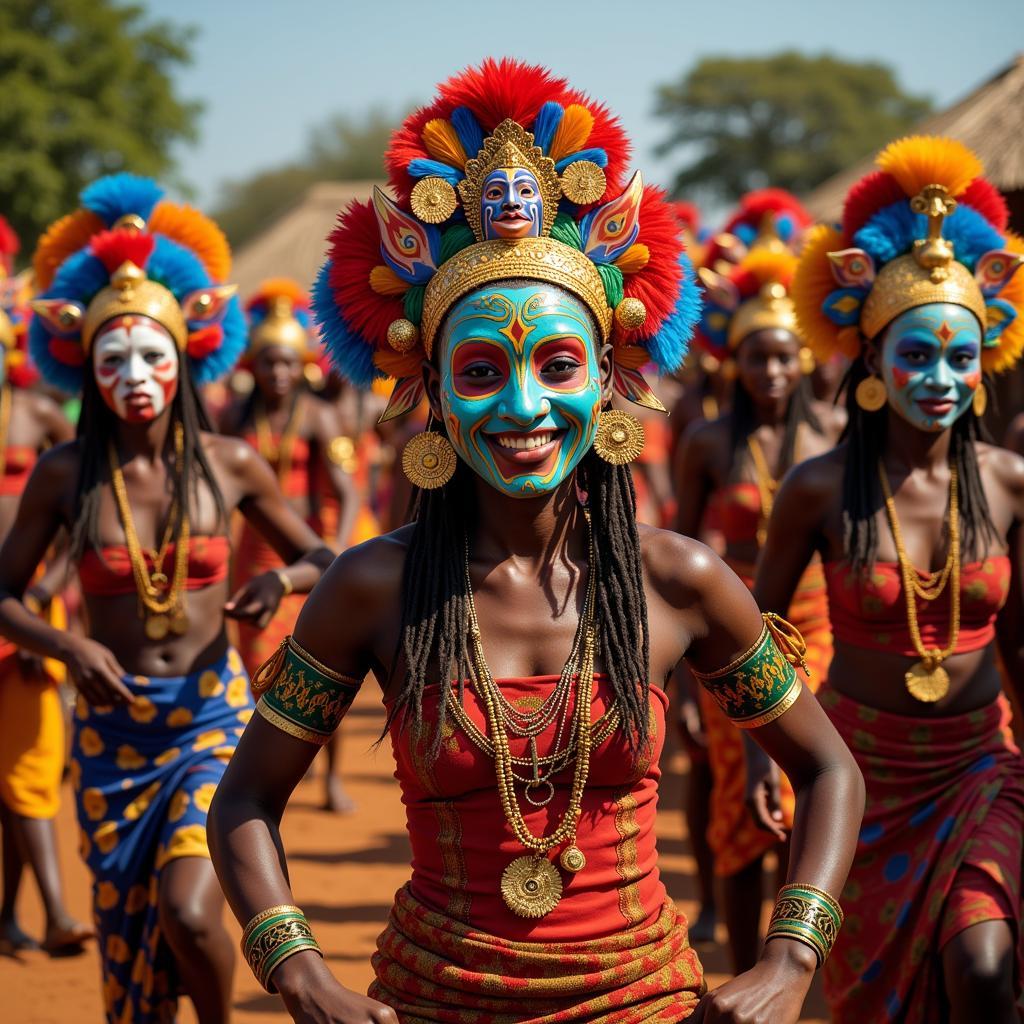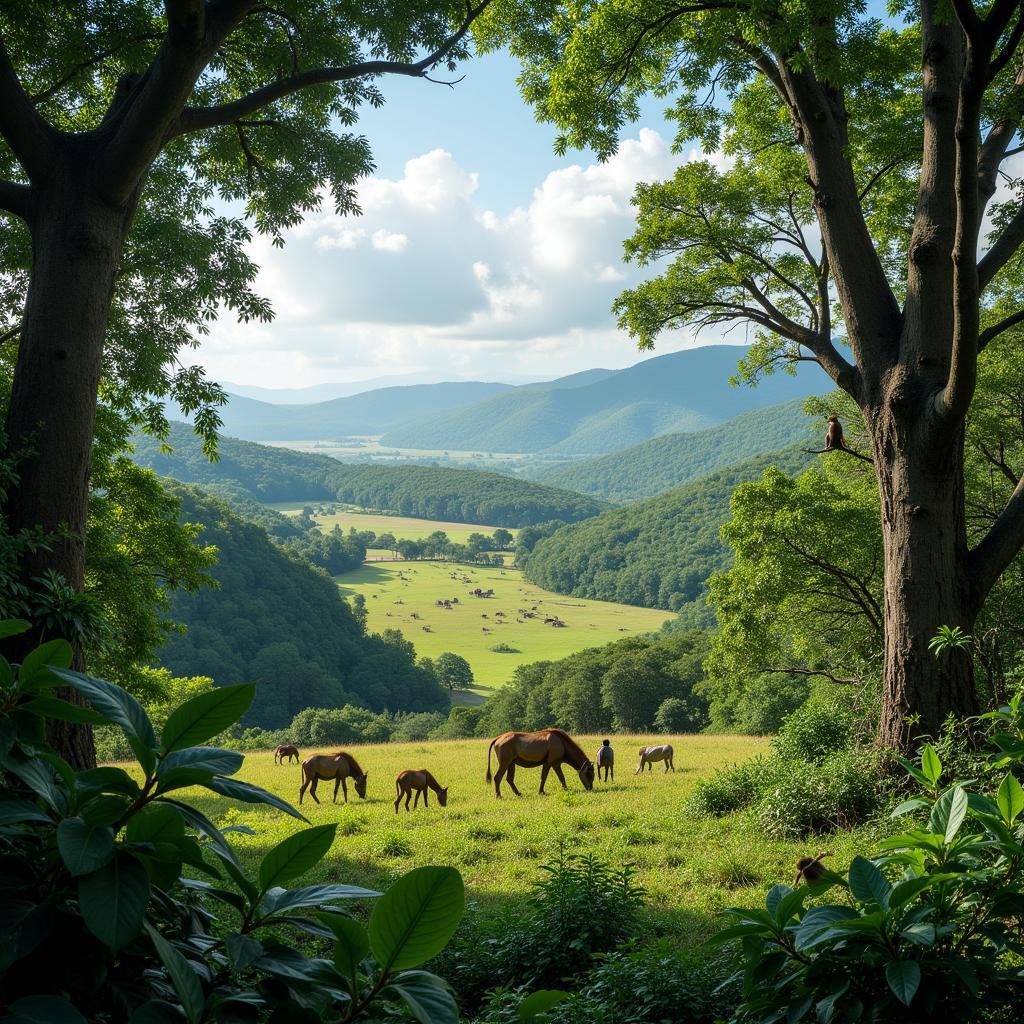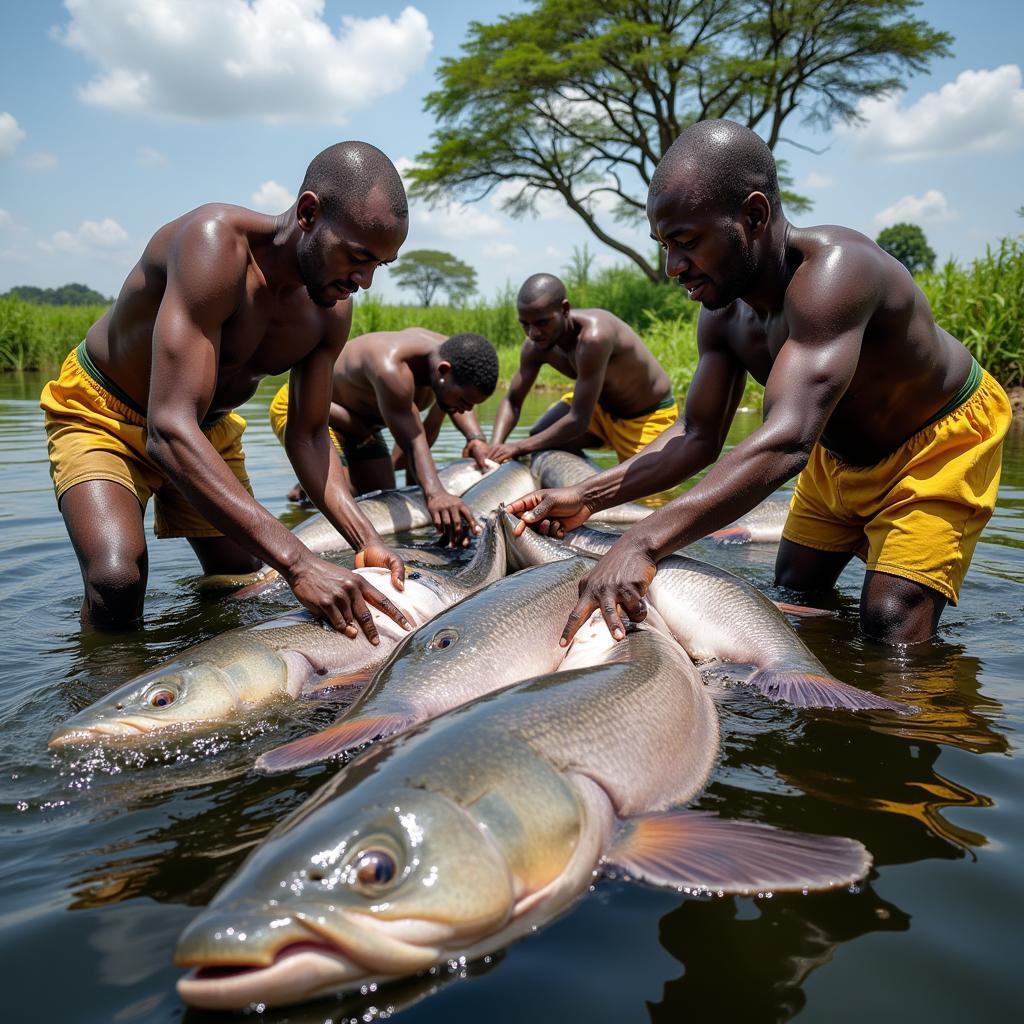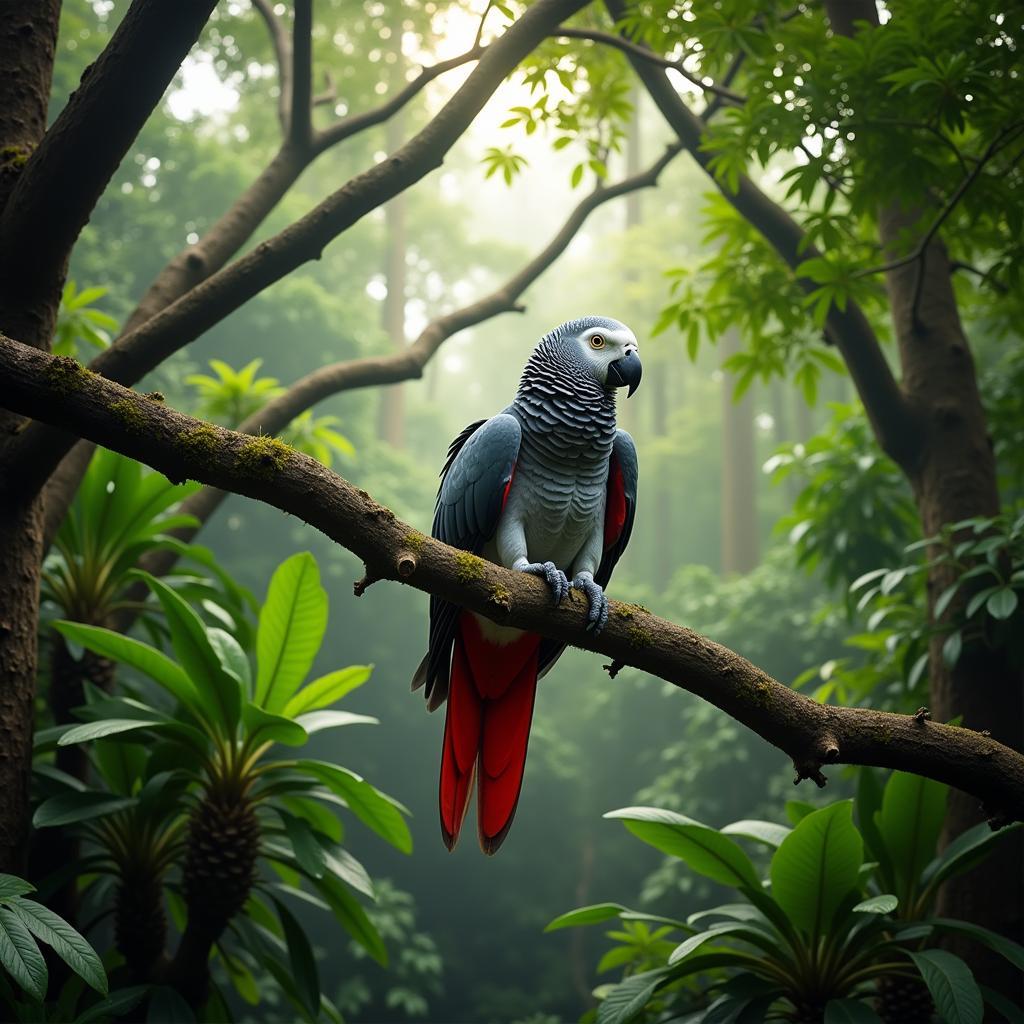African Deities Encyclopedia: Exploring the Rich Pantheon of Gods and Goddesses
The diverse cultures and rich history of Africa have birthed a captivating array of deities, each embodying unique powers, stories, and cultural significance. This African Deities Encyclopedia aims to guide you through this fascinating world, offering insights into the beliefs and traditions surrounding these powerful beings.
Unveiling the Divine: Who are African Deities?
African deities are supernatural beings revered and honored within various traditional African religions. They are believed to hold dominion over aspects of nature, human life, and the spiritual realm. From the powerful gods of creation to the benevolent spirits of ancestors, these deities are central to understanding the beliefs and practices of many African cultures.
Delving into the Pantheon: Key Deities across Africa
Yoruba Deities (Nigeria and Benin)
The Yoruba pantheon is vast and complex, with deities known as Orishas playing vital roles in daily life.
- Olodumare: The supreme creator deity, often seen as the source of all other Orishas.
- Shango: The powerful god of thunder and lightning, associated with justice and fire.
- Oshun: The alluring goddess of love, beauty, and rivers, known for her wisdom and healing powers.
Egyptian Deities (Ancient Egypt)
The ancient Egyptians possessed a highly developed system of beliefs, with deities often depicted as part human, part animal.
- Ra: The sun god, a powerful symbol of light, warmth, and creation.
- Osiris: The god of the underworld and rebirth, closely associated with the Nile River and agriculture.
- Isis: A powerful goddess associated with magic, healing, and motherhood, often depicted with her husband Osiris.
Zulu Deities (Southern Africa)
The Zulu people believe in a supreme creator god, as well as a host of ancestral spirits.
- Unkulunkulu: The creator god, often seen as a distant figure who withdrew from direct involvement in human affairs.
- Nomkhubulwane: The goddess of fertility, rain, and rainbows, often associated with agriculture and prosperity.
The Role of Deities in African Cultures
African deities are not merely figures of worship but integral to daily life. They are consulted for guidance, appeased through offerings and rituals, and celebrated through festivals and ceremonies. Their influence can be seen in art, music, storytelling, and social customs across the continent.
 African Mask Ceremony
African Mask Ceremony
FAQ: Exploring Common Questions about African Deities
1. Are all African deities the same? No, African deities vary significantly between cultures. Each ethnic group has its own unique pantheon and beliefs.
2. How are African deities typically honored? Deities are often honored through offerings, sacrifices, prayers, rituals, and elaborate festivals.
3. What is the significance of animals in relation to African deities? Many deities are associated with specific animals, which are often seen as their messengers or representations.
4. Do people still worship African deities today? Yes, traditional African religions are still practiced by many across the continent, often blended with other faiths.
5. Where can I learn more about specific African deities? Numerous books, academic articles, and online resources delve deeper into specific pantheons and deities.
Further Exploration: Discovering More about African Life
Interested in diving deeper into the richness of African culture? Explore more about african festivals facts and their connections to deities.
Need More Information?
Contact us at Phone Number: +255768904061, Email: [email protected], or visit us at Mbarali DC Mawindi, Kangaga, Tanzania. We have a 24/7 customer support team ready to assist you.


